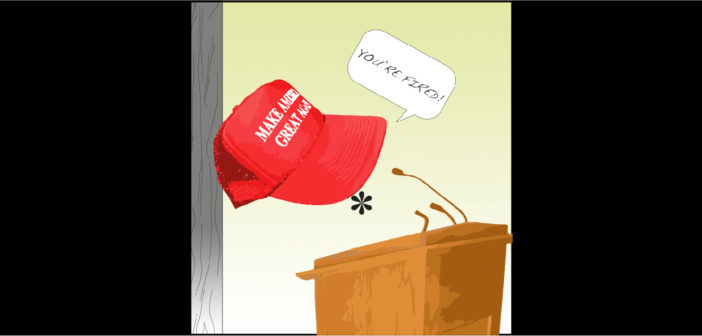On Jan. 20, President Trump was formally sworn in as the 45th president of the United States. The ceremony—traditionally noted as historic yet relatively mundane as the new leader optimistically leads the country into a new chapter—managed to become something of a spectacle, though this should have almost been expected based on the businessman’s antics during the past year and a half.
It was revealed before the inauguration that Charlie Brotman, the announcer of the past 11 inaugurations dating back to Dwight D. Eisenhower’s second term, would not return this year. The 89-year-old Brotman said he was “heartbroken” to learn of the news, quipping, “Maybe they’re afraid I might drop dead at the mic,” in an interview with the Daily Beast. Regardless of the reason, Brotman was out and freelance announcer and Trump supporter Steve Ray was in as the announcer.
But much of the media’s attention as the historic day approaches was centered on the celebrities and the performers, or the lack thereof, as Trump’s polarizing rhetoric has turned many off.
In late December, controversy ensued after the announcement the Radio City Rockettes would perform at the inauguration after it was revealed the dancers seemingly were under heavy pressure to accept or potentially lose the opportunity to be selected to perform in the future.
But more so, Trump’s feud with Hollywood’s stars seemed to have finally reached its boiling point, as Trump went so far as to tweet,
The tweet no doubt reflected an attempt to spin his team’s failure to secure high-profile talent to perform at the inauguration. In December, a Trump surrogate had announced Elton John would be among the performers, only to have John’s reps immediately deny the report.
Notable historical inauguration moments:
Oftentimes referred to as the Revolution of 1800, Thomas Jefferson’s inauguration signaled the first transfer of executive power between opposing political parties.
William Henry Harrison, the ninth president of the United States, opted to endure the elements without a top coat or gloves, only to fall ill shortly thereafter and die of pneumonia just one month into his term.
For his fourth and final inauguration, Franklin Roosevelt declined any sort of fanfare, reportedly due in honor of those fighting in the Second World War. Roosevelt delivered a speech that was just five minutes long; unknown to the public, Roosevelt was suffering from heart failure at the time.
In a decision that reflected his connection to the people, Jimmy Carter decided to walk back from Capitol Hill to the White House, becoming the first president to do so.

